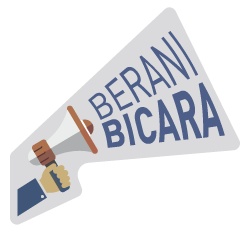
Sustainability
Chemical and Pest Management
We are committed to use composting as much as possible and reduce the use of inorganic fertilizers. Composting is not only much a cheaper source of natural fertilizer compared to inorganic fertilizers, but also a much more environmentally friendly alternative with less emissions of GHG. Current composting technology will only allow us to produce compost that are adequate to be applied to a maximum of half of our plantation area.
We target each estate to have its own composting processing plant by 2030 and reduce inorganic fertilizer use by 30% compared to the 2015 base year. Currently, two of our estates, ANJAS in North Sumatra and SMM in Belitung, have their own composting plants, producing 76,562 tons of compost in 2021. This was sufficient to be applied to 51% of our area to improve the soil nutrient condition. We plan to build another composting plant at KAL in West Kalimantan. In concessions with no composting plants, we recycle empty fruit bunches to reduce inorganic fertilizer use. In 2021, we used a total of 206,733 tons of organic fertilizers, or 87% of the total fertilizers used.
Inorganic fertilizer usage in the last 6 years within our Group is as follows:
We are also committed to reducing chemical usage for pest and disease control. Our Research and Development Department developed the use of biological predators, such as Barn owls (Tyto alba), and biological insecticides, such as Bacillus thuringiensis and Metarrhizium anisopliae, as part of our Integrated Pest Management Program. It is part of our effort to implement the best and most sustainable agronomic practices to control pests and diseases.
We use Barn owls to reduce the intensity of rat attacks from 9.8 % to 1.7%. As a natural predator of rodents, the Barn owl can effectively control the rodent population without using harmful chemicals or rodenticides. These Barn owls can roam, feed, and breed freely and naturally in and around our estates. To ensure that they are not poisoned from consuming rodents in our estates, we only use rodenticides that are proven to be harmless to the owls.
Barn owls are native to Sumatra Island and live freely in the wild around our operations in North Sumatra and Belitung (an island adjacent to Sumatra Island). To attract their presence in our estates, we build owl nests for these birds to live in and lay their eggs. These nests are constructed with a ratio of 1 (one) nest for every 20 ha and can house a couple of these owls.
We have also introduced Barn owls in our Kalimantan operations because these birds are non-native to the area. As part of our introduction program, we have established an aviary where the Barn owls are quarantined after transportation to monitor their health and avoid disease transmission risks. During quarantine, we care for the owls, clean and disinfect them from pathogens, and feed them, including with supplements or other care as recommended by qualified veterinarians, to be sufficiently healthy and free of disease before being released to our estates. Owls are also given food supplements prior to transportation to increase their survivability.
As in Sumatra, we build owl nests around our estates to house the birds. The nests are monitored and observed by our team once every month to check for signs of healthy behaviors, such as the presence of rodent carcasses, the existence of eggs or chicks, and the general condition of the nests. Our staff also monitor the owls to maintain a healthy population. To accelerate the owl population growth, hatched chicks are brought to our aviary to maximize survival rates and to get looked after until they have grown strong enough to be freed in the wild. Our staff are trained to have the necessary knowledge and skills to take care of the owls in our aviary and to monitor their condition in the field.
We are committed to the "Five Freedoms" principle of animal welfare by ensuring that the owls are free from hunger, thirst, and malnutrition; free from physical and thermal discomfort; free from pain, injury, and disease; able to express most of their standard behavioral patterns; and do not experience fear or distress. Other than using Barn owls as biological predators, our leading operational activities of planting, growing, and harvesting palm oil, sago, or vegetables in our estates and our suppliers' estates do not involve animals. Our Research and Development Department does not carry out any experiments on animals. Our Vice President Director oversees the implementation of our commitment to animal welfare.
The list of chemicals used in our palm oil plantation is as follows:
